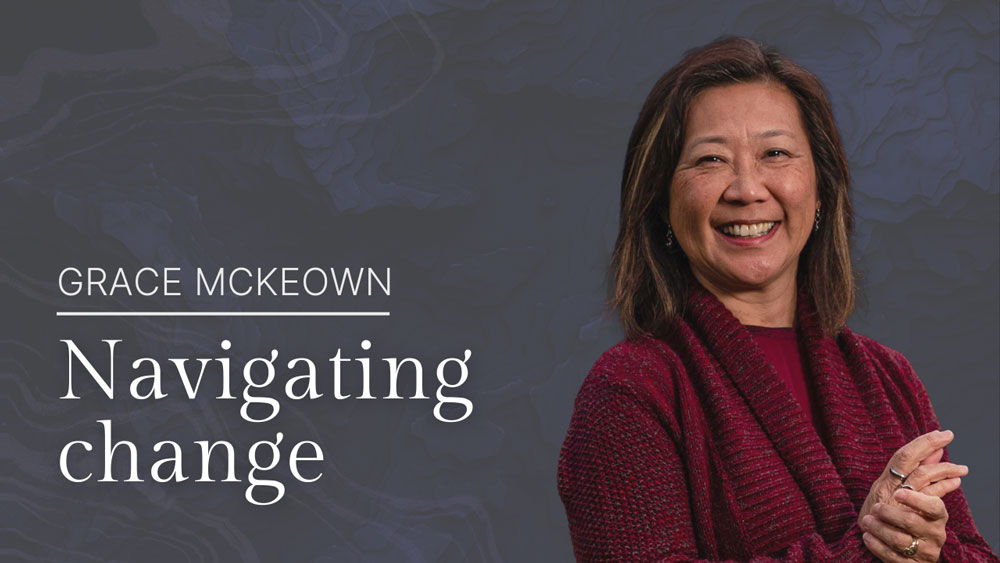David Lovejoy
3
min read
Interdisciplinary Leadership
Karen Spencer
Managing Director | Fetch Strategies
Top 3 Takeaways
Value of Multidisciplinary Education: Karen's journey illustrates the value of a diverse educational background. From chemical engineering at MIT to law at Harvard and management at Stanford, her varied academic path was driven by curiosity and a desire to explore different industries. This diversity allowed her to adapt, learn, and succeed in various fields, underlining the importance of interdisciplinary education.
Championing Diversity and Inclusivity: As a female and BIPOC leader, Karen openly discussed her challenges and biases. Her experiences underscore the importance of maintaining authenticity and pushing through cultural expectations in the American business environment. Through her story, she aims to inspire others, especially from underrepresented backgrounds, to break barriers and pursue their passions across multiple disciplines.
Promoting Acquisition Entrepreneurship: Inspired by her experiences in politics and education, Karen has used her networking skills and entrepreneurial spirit to support acquisition entrepreneurship. She developed and taught a course to provide accessible resources to a diverse pool of entrepreneurs. Anticipating exponential growth in this field, she hopes to ensure its continued diversity, inclusivity, and collaboration.
Introduction
As the world becomes increasingly interconnected and diverse, there is a growing demand for leaders who can navigate multiple fields and industries. In a recent interview, I had the pleasure of speaking with Karen Spencer, a trailblazing leader whose diverse educational background in chemical engineering, law, and management has uniquely positioned her for success in various sectors, including acquisition entrepreneurship.
"…it was pretty much the hardest thing you could do at MIT, and I thought that would be a fun challenge…so, while some of my other classmates were not pulling their hair out studying for thermodynamics, that's what I was doing, studying mass transfer."
After receiving her degree in chemical engineering from MIT, Karen did a stint as a research fellow at Osaka University through the innovative MIT-Japan Program that prepares students to be global citizens. Next, she pursued law at Harvard and finally completed a master's in management at Stanford. Her innate curiosity drove her distinct academic path and desire to explore different industries. She shared her experiences in each field, highlighting the lessons learned and the reasons for her transition from one area to another.
Pursuing challenging subjects and heeding general advice for a successful career, Karen initially studied fields that didn't align well with her professional aspirations. However, she continued to evolve, transitioning from a science-focused education at MIT to a legal education at Harvard, eventually becoming a patent litigator. This role allowed her to spend significant time with innovators and scientists, which she thoroughly enjoyed.
Navigating Biases and Cultural Expectations
As a female BIPOC leader, Karen candidly discussed the biases and challenges she has faced in her professional journey, including the cultural differences and the importance of being aware of the cultural expectations within the American business environment. She believes that professionals of colour often grapple with maintaining their authenticity while conforming to these expectations. Through sharing her experiences, Karen hopes to inspire others to break through barriers and pursue their passions across multiple disciplines.
Inspired by her experiences in politics and education, Karen has channelled her exceptional networking skills and entrepreneurial spirit to support acquisition entrepreneurship. She developed and taught a course on the subject, providing accessible instruction and resources for a more diverse pool of entrepreneurs, particularly those from underrepresented backgrounds.
Mentoring the Next Generation and Cultural Learning
When asked about advice for those she mentors, Karen emphasized the importance of practice, knowing your audience, and having an entrepreneurial mindset. She also shared her strategy for balancing her time, inspired by the book "The Power of Full Engagement," approaching her day as a series of sprints and incorporating activities that provide spiritual, mental, and emotional fulfillment.
Karen's experiences in Japan significantly shaped her values and understanding of cultural differences, including the importance of cherishing each moment. As the world of acquisition entrepreneurship evolves, she believes the community will experience exponential growth and hopes to ensure that it remains diverse, inclusive, and collaborative as it expands.
Conclusion
Karen's story is a testament to the value of a multifaceted educational background and the ability to adapt and learn from different fields. Her experience highlights how these qualities can lead to a successful and fulfilling career. As we celebrate the achievements of pioneering leaders like her, we must also work towards breaking down the biases and barriers that persist in our professional environments, creating a more inclusive and dynamic global community that thrives on exchanging ideas and experiences.



